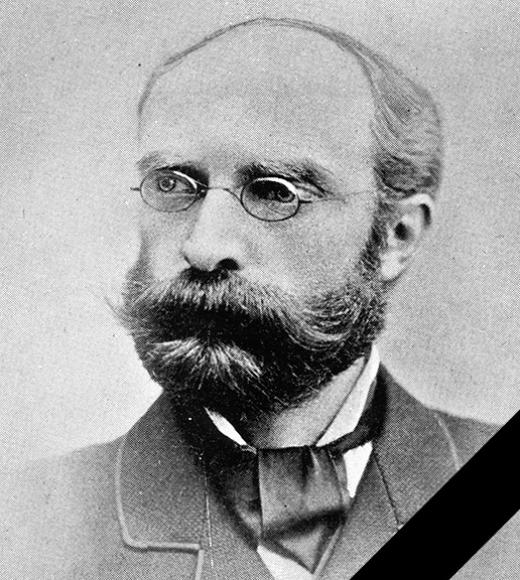
Position Title
In Memoriam
Dean of College of Agriculture
1848-1923
EDWARD JAMES WICKSON
Birth: August 3, 1848, Rochester, New York
Death: July 17, 1923, Berkeley, California
Education
- B.A., Hamilton College, New York, 1868–1869 (Classics and Chemistry)
Employment
- Journalist and Agricultural Editor, Pacific Rural Press, Contributor 1875–1894; Editor 1899–1923
- Lecturer in Practical Agriculture, University of California, 1879
- Assistant Professor of Agriculture, University of California, 1891
- Associate Professor of Agriculture, Horticulture, and Entomology, University of California, 1892
- Professor of Agricultural Practice and Superintendent of Agricultural Extension, University of California, 1897–1905
- Dean, College of Agriculture, University of California, 1906–1912
- Director, Agricultural Experiment Station, 1906–1912
- Emeritus Professor of Horticulture, 1915–1923
Honors, Awards, and Professional Societies
- Founding Secretary, California State Horticultural Society, 1879
- First President, California Floral Society, 1888
- San Francisco Microscopical Society, 1877–1906
- Delegate, American Commission to Study Agricultural Cooperation and Rural Credit in Europe, 1913
- Namesakes
- Wickson Hall, UC Davis
- Wickson Natural Area, UC Berkeley
- Wickson plum (named by Luther Burbank, 1894)
- Wickson crabapple (introduced 1944)
Research Contributions and Impact
Edward Wickson was a central figure in shaping California agriculture during the late 19th and early 20th centuries. He promoted field-based agricultural education, developed Farmers’ Institutes, and advanced University Extension programs. Wickson was instrumental in establishing the University Farm at Davis (now UC Davis), the Citrus Experiment Station at Riverside, and the Southern California Pathological Laboratory at Whittier.
He authored influential texts including The California Fruits and How to Grow Them (1889), The California Vegetables in Garden and Field (1898), and Rural California (1923), which guided generations of growers. His research and writing bridged the gap between practical farming and scientific methods, facilitating the widespread adoption of improved practices across the state.
Publications and Scholarly Leadership
Wickson’s agricultural journalism and books shaped national and international perceptions of California agriculture. He championed the work of Luther Burbank, authoring Luther Burbank; Man, Methods and Achievements (1902) and contributing anonymously to Luther Burbank: His Methods and Discoveries (1915). Through his editorial leadership of the Pacific Rural Press, he disseminated research findings and practical advice to a broad farming audience.
Teaching and Mentorship
As a University of California faculty member, Wickson emphasized practical, field-based training, counterbalancing laboratory-heavy curricula. His commitment to farmer education helped secure the College of Agriculture’s role within the UC system, protecting it from efforts to separate agricultural studies into a standalone institution.
Collaboration and Community
Wickson’s leadership extended to organizing California’s first dairy association in 1876 and serving as secretary of the New York Dairymen’s Association earlier in his career. He worked to unify academic, agricultural, and community interests in shaping policy, ensuring the relevance of agricultural science to farmers.
Legacy
Edward J. Wickson’s legacy endures in the institutions he helped establish and the agricultural systems he advanced. His writings remain landmark references, and his advocacy for field-based agricultural education shaped the identity of UC Davis and the broader UC system. Wickson Hall at UC Davis and the Wickson Natural Area at UC Berkeley honor his lifelong contributions.
References
For additional tributes, interviews, and biographies, see the following resources:
- Wikipedia
- UC Davis Library, Wickson Papers
- UC Riverside, Dissertation: Wickson's Quiet Voice for Change
